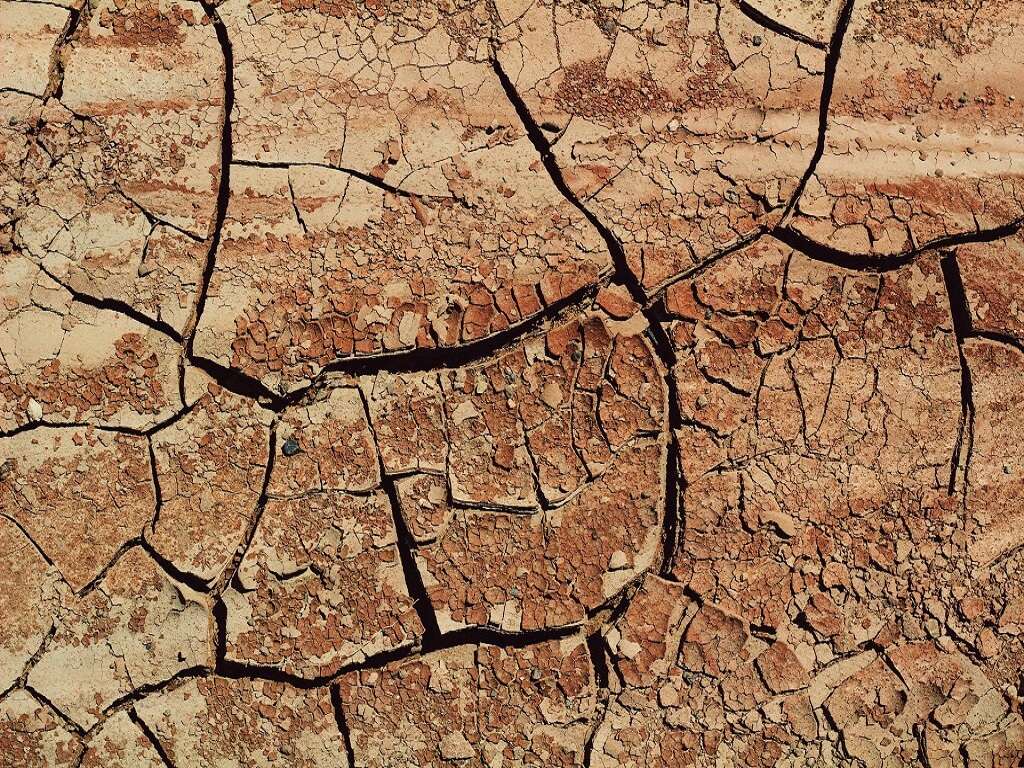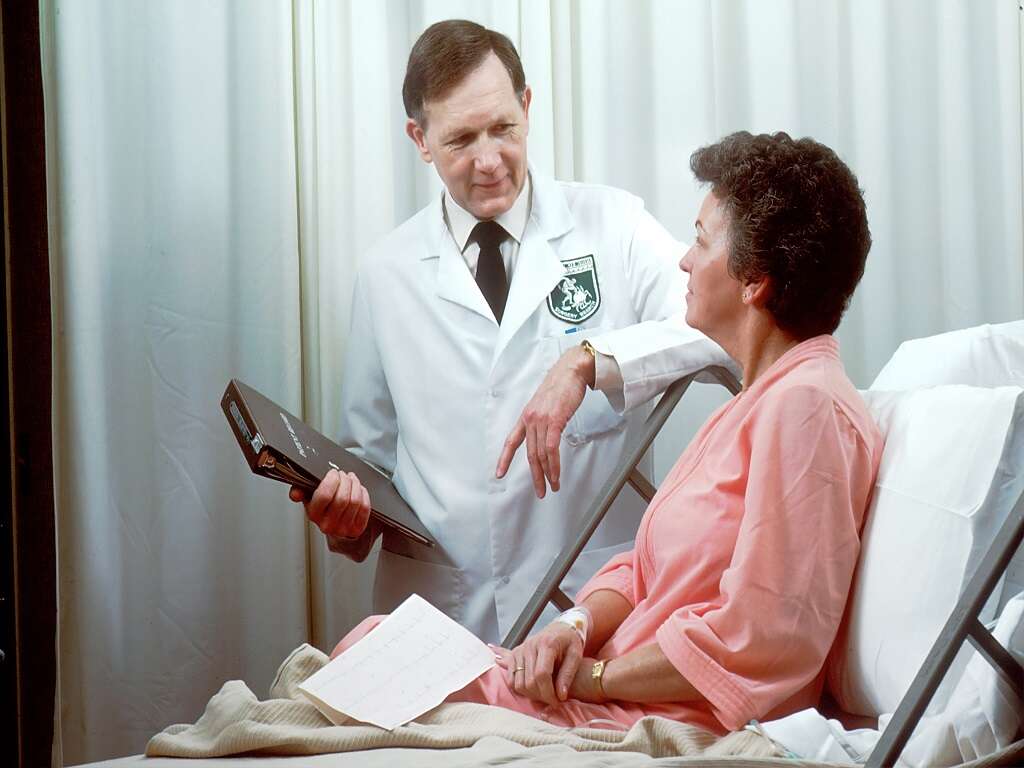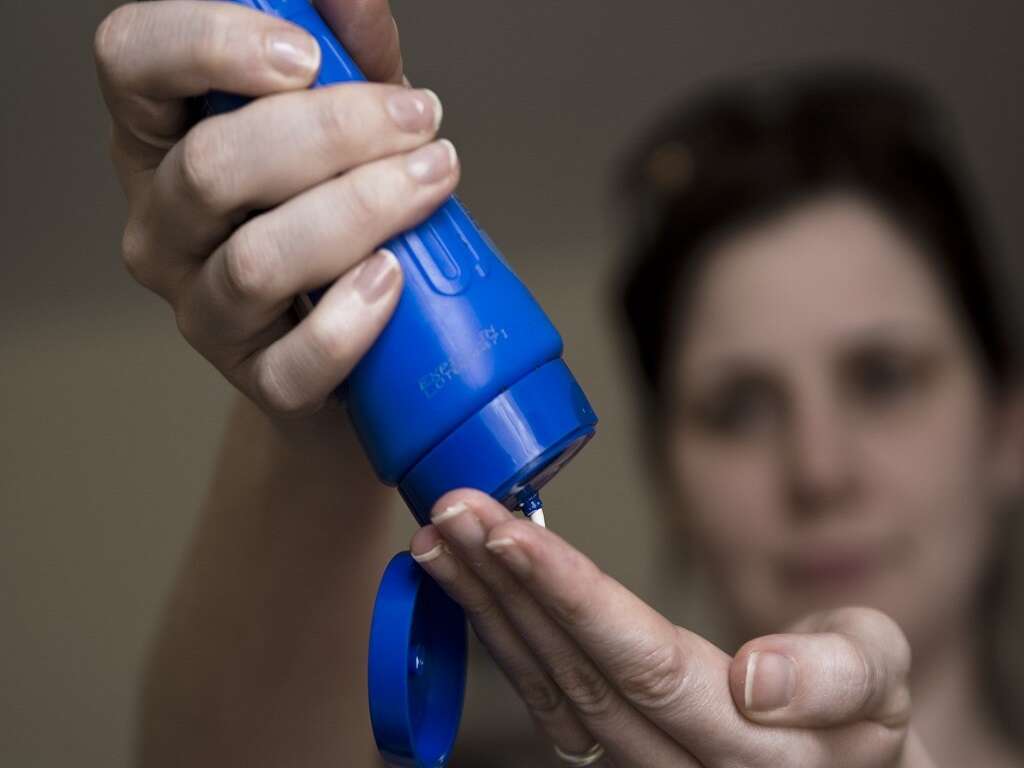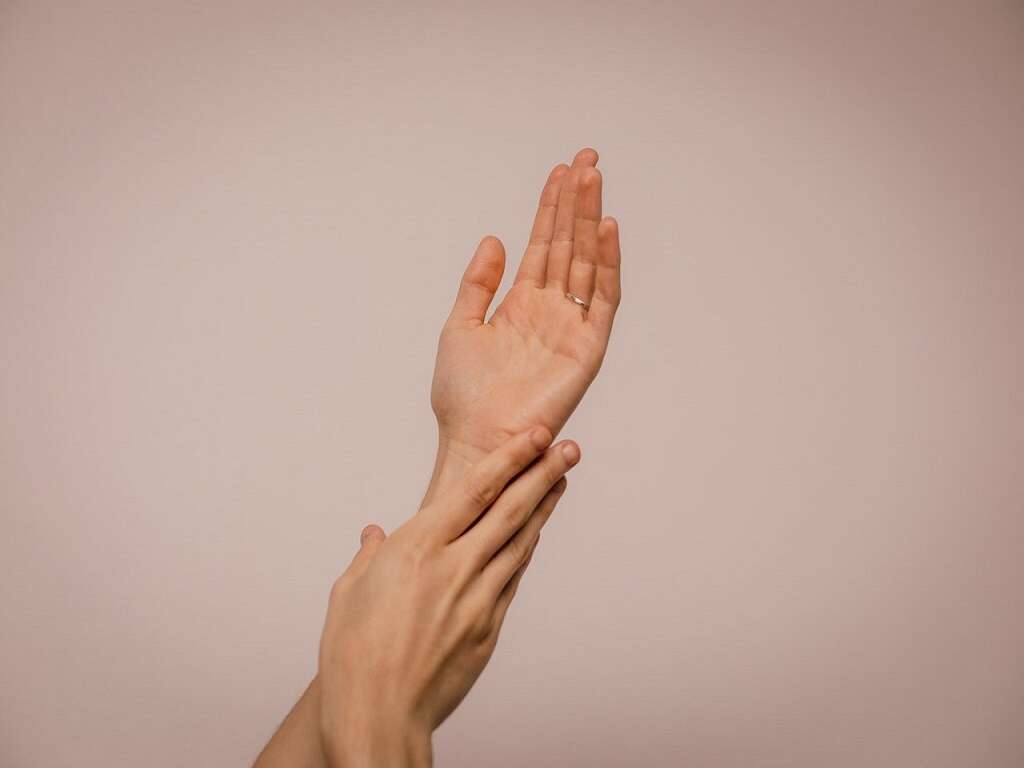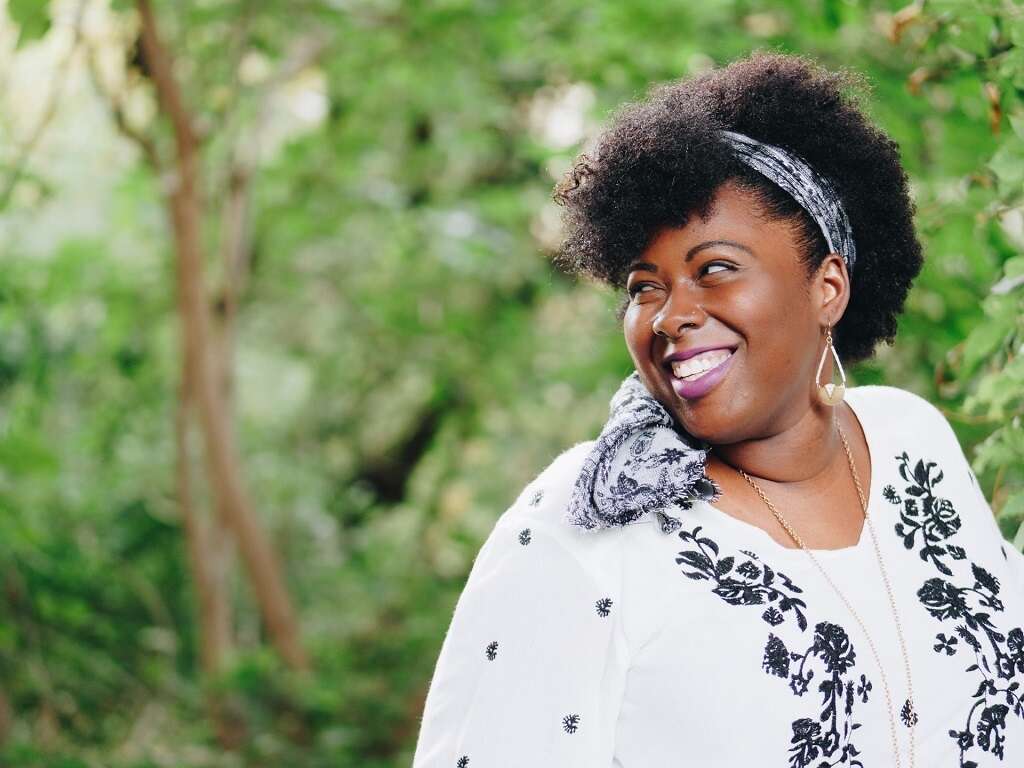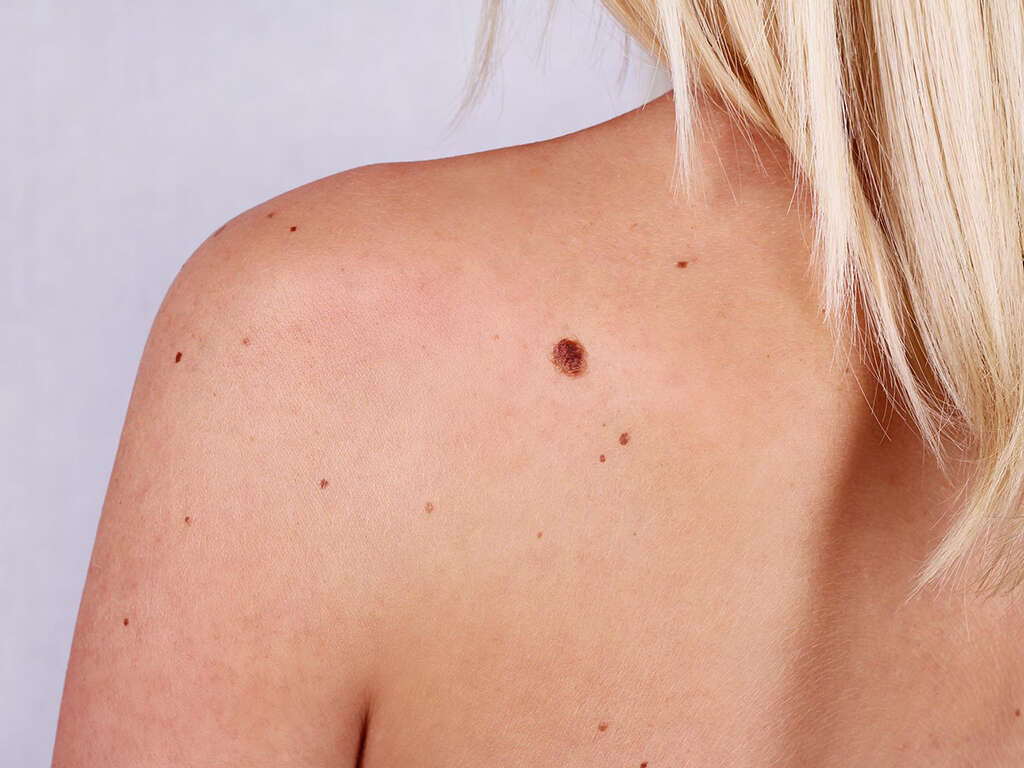10 Basal Cell Carcinoma Symptoms
 Article Sources
Article Sources
- 1. Basal Cell and Squamous Cell Carcinoma Symptoms. Ucsfhealth.org, www.ucsfhealth.org/conditions/basal-cell-and-squamous-cell-carcinoma/symptoms.
- 2. Skin Cancer Types: Basal Cell Carcinoma Signs and Symptoms. American Academy of Dermatology, www.aad.org/public/diseases/skin-cancer/types/common/bcc/symptoms.
- 3. Basal Cell Carcinoma Warning Signs and Images. The Skin Cancer Foundation, 4 Jan 2021, www.skincancer.org/skin-cancer-information/basal-cell-carcinoma/bcc-warning-signs-images/.
- 4. Chlebicka, Iwona, et al. Is Basal Cell Carcinoma an Itchy Tumor? Clinical Characteristics of Itch in Basal Cell Carcinoma. Journal of Clinical Medicine, MDPI, 26 July 2020, www.ncbi.nlm.nih.gov/pmc/articles/PMC7465681/.
Basal cell carcinoma is one of the most commonly diagnosed forms of nonaggressive skin cancer and is rarely fatal. The most common causes of this slow-growing cancer include chronic exposure ultraviolet rays from the sun and overuse of tanning beds.1Basal Cell and Squamous Cell Carcinoma Symptoms. Ucsfhealth.org, www.ucsfhealth.org/conditions/basal-cell-and-squamous-cell-carcinoma/symptoms.
This type of cancer is relatively asymptomatic, but there are a few warning signs. Any changes to sores, moles or strange growths on sun-exposed areas of the body should always be investigated. It’s also important to remember that not all skin lesions and growths are cancer. Below are 10 symptoms that are considered red flags for basal cell carcinoma.
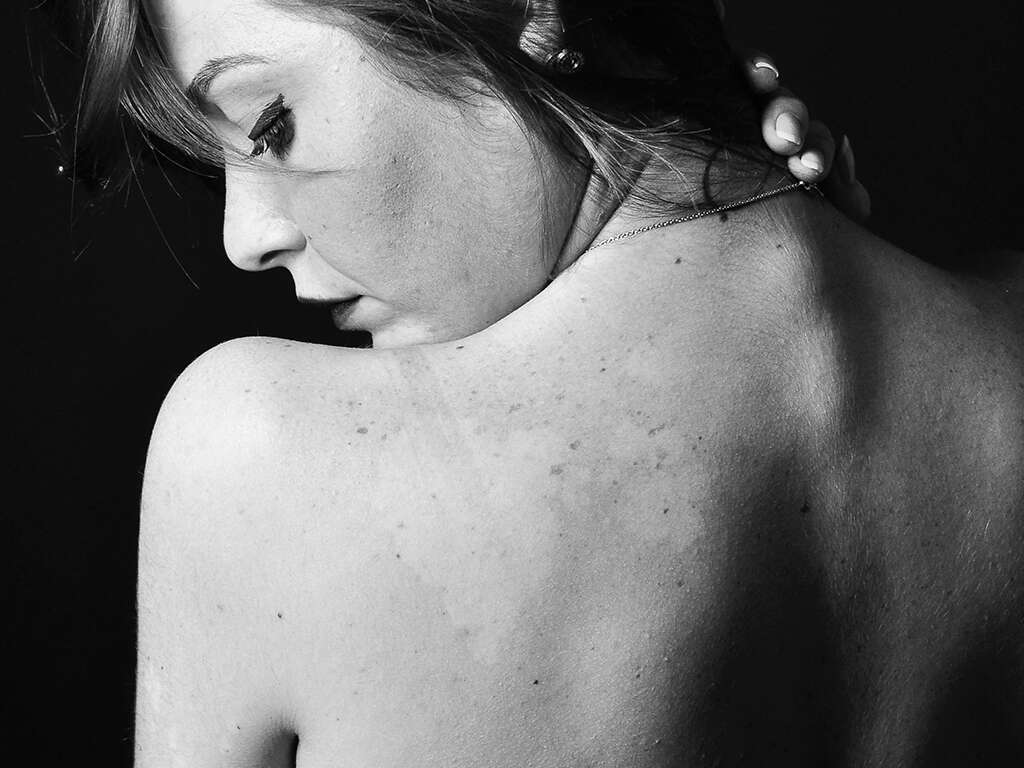
1. Open Sores That Don’t Heal
Sores that don’t heal over a period of a couple of months should be scrutinized. Most sores have a natural healing period, but basal cell carcinoma sores tend to heal and then return. These chronic sores are characterized by bleeding, oozing and crusting. Basal cell carcinomas sores are also often mistaken for recurring pimples.2Skin Cancer Types: Basal Cell Carcinoma Signs and Symptoms. American Academy of Dermatology, www.aad.org/public/diseases/skin-cancer/types/common/bcc/symptoms.
Individuals with sores that get progressively worse or never fully disappear should consult a dermatologist or medical professional. Not all chronic sores are carcinomas, but any wound that doesn’t heal might have other underlying causes.
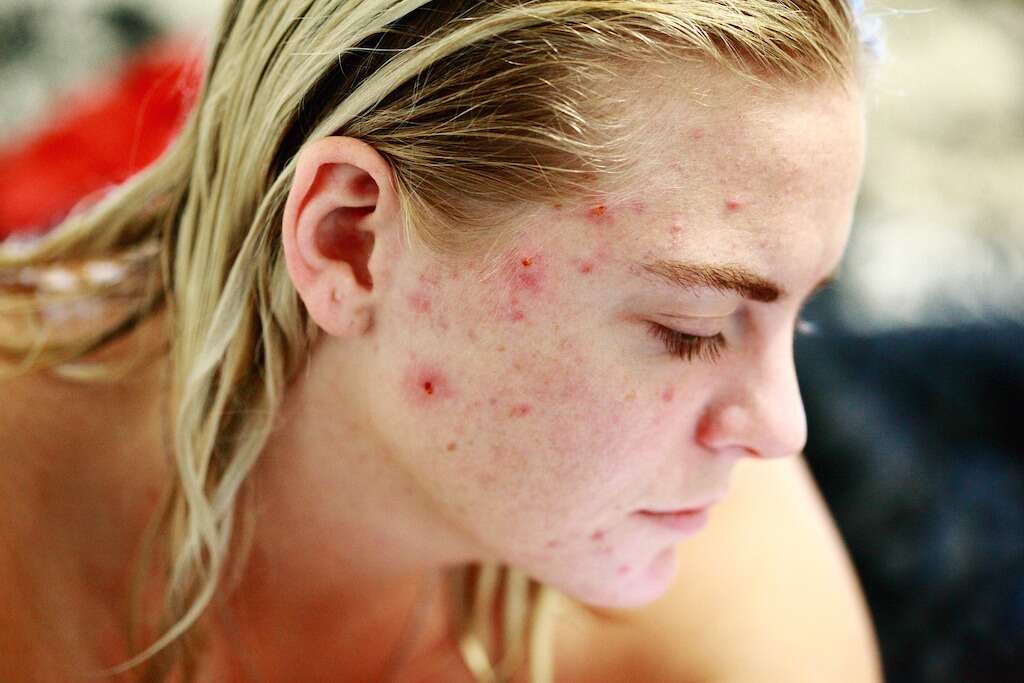
2. A Raised Pink Growth
Another telling sign is an unusual pink or red growth with a rough, jagged border and a crusty depression in the center.3Basal Cell Carcinoma Warning Signs and Images. The Skin Cancer Foundation, 4 Jan 2021, www.skincancer.org/skin-cancer-information/basal-cell-carcinoma/bcc-warning-signs-images/. These growths are typically quite small and can vary in size and color dependent on skin type.
Over time, the growth may develop a spiderweb of minute blood vessels. The blood vessels burst quite easily, making the growths prone to bleeding. A pink or red growth that could possibly be a basal cell carcinoma is easily identifiable by its crater-like center.

3. Visible Blood Vessels on Growths
Skin nodules and unusual pink growths with a network of blood vessels just beneath the surface could indicate the presence of a basal cell carcinoma. Growths are generally pink and red in color, but it’s not uncommon for individuals to present with brown and black growths that resemble moles.
Concerned individuals should watch their growths for blood vessels and monitor how often they bleed. These types of carcinomas are notorious for bleeding because of the fragility of the blood vessels.

4. Areas of Itchy Skin
Although itchy skin is not a huge cause for concern, it can be a symptom of skin cancer. The majority of itchy skin cases are caused by contact dermatitis or allergies.
A recent study revealed that 31.1% of patients diagnosed with basal cell carcinoma reported daily itching localized to the tumor area.4Chlebicka, Iwona, et al. Is Basal Cell Carcinoma an Itchy Tumor? Clinical Characteristics of Itch in Basal Cell Carcinoma. Journal of Clinical Medicine, MDPI, 26 July 2020, www.ncbi.nlm.nih.gov/pmc/articles/PMC7465681/. Most of these cases report itching but no pain. The best solution is to consult an expert to determine the root cause of itchy skin.

5. Pearly Bump or Nodule
One of the first signs of basal cell carcinoma is the emergence of a translucent or pearl-like nodule/bump that resembles a mole or pimple. These papules can get larger over time, and their structure could change.
If the nodule is different from the normal lumps and bumps on the individual’s body, it’s worth getting expert advice. Basal cell carcinoma skin cancer lesions tend to be strange in size and stature, lack symmetry and commonly appear in the head and neck region.2Skin Cancer Types: Basal Cell Carcinoma Signs and Symptoms. American Academy of Dermatology, www.aad.org/public/diseases/skin-cancer/types/common/bcc/symptoms.

6. Crusty and Bleeding Sores
A chronic sore is a cause for concern, especially one that doesn’t heal within several weeks. Basal cell carcinoma sores can be quite deep and ooze liquid. Unlike open sores, they tend to form a scab and appear to improve over time but return quite quickly.
Crusty and bleeding sores require attention. Bleeding sores can lead to all sorts of complications and infections, even if they aren’t basal cell carcinomas. Those with unusual sores should watch to see if they evolve over time.
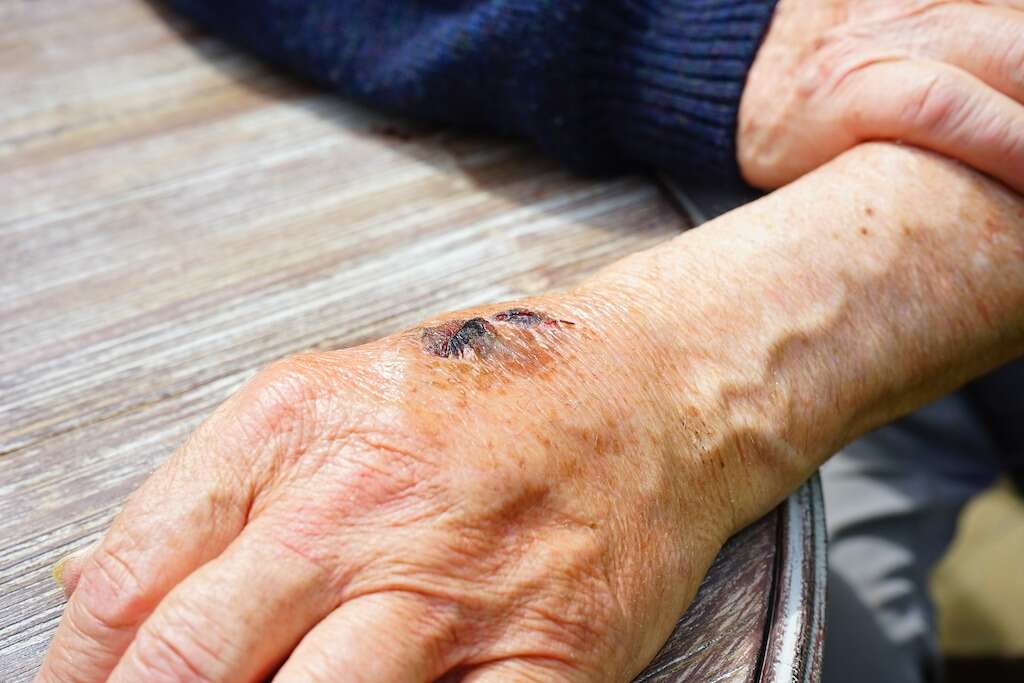
7. Patchy Skin Resembling Eczema
Eczema and Psoriasis are common skin conditions, but some skin cancers can mimic these rashes. Basal cell carcinoma is one such cancer; however, it tends to be isolated to one area of the body.
Basal cell carcinoma patches tend to be a solid color and most commonly occur in areas exposed to the sun. The face, limbs, back, shoulders and neck are the most likely places where individuals will find spots of suspicious patchy skin.3Basal Cell Carcinoma Warning Signs and Images. The Skin Cancer Foundation, 4 Jan 2021, www.skincancer.org/skin-cancer-information/basal-cell-carcinoma/bcc-warning-signs-images/.

8. Scar-Like Patches
Small scar-like patches with a waxy texture that appear on sun-exposed areas of the body could indicate something sinister at play. Scar-like blotches are one of the many symptoms of basal cell carcinomas. Although the patches occur all over the body, they’re most commonly spotted on the face.
The skin on the scar-like patches is often tight and quite smooth. The patches are normally white or yellow and look like small blotches with undefined borders.
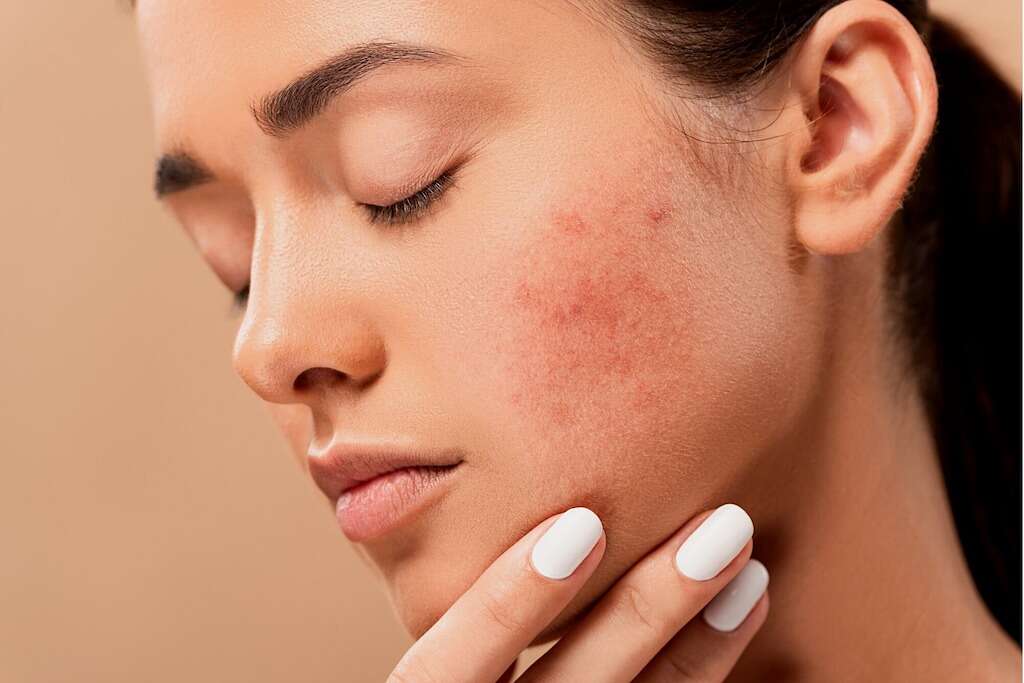
9. Scaly Patch Close to Ear
In the previous slide, we mentioned the presence of scar-like patches being one of the many symptoms of basal cell carcinoma. More specifically, individuals often present with a small, scaly patch close to the ear.
These tiny flaky, scaly patches are often mistaken for scars or dry skin. Just like the rest of the symptoms listed, it’s vital to observe any scaly blotches and patches in the ear region.3Basal Cell Carcinoma Warning Signs and Images. The Skin Cancer Foundation, 4 Jan 2021, www.skincancer.org/skin-cancer-information/basal-cell-carcinoma/bcc-warning-signs-images/.
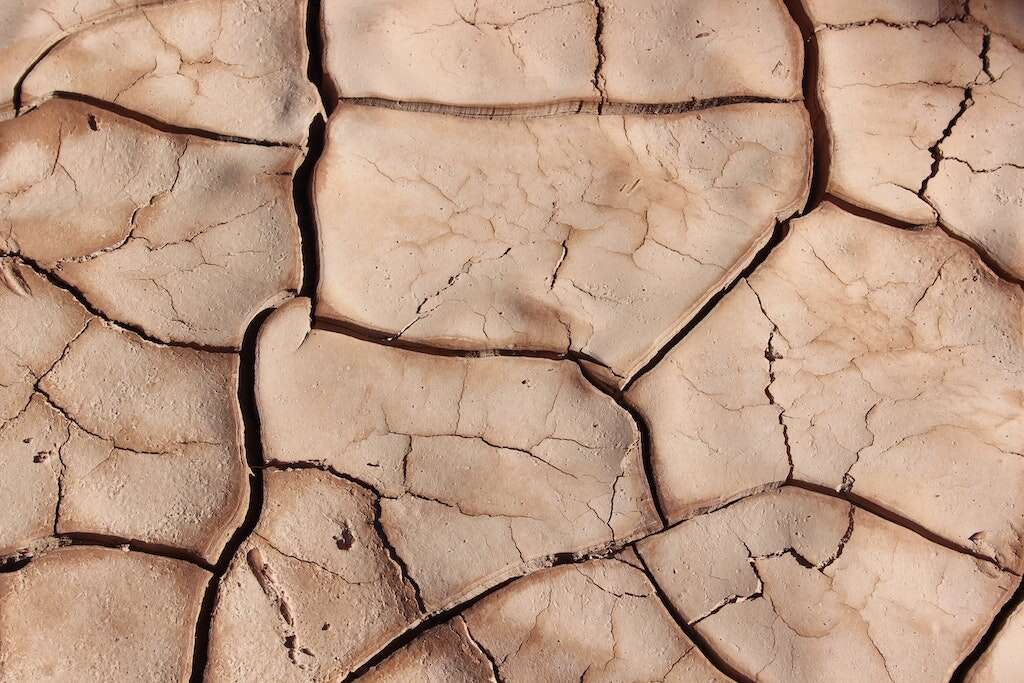
10. Unusual Skin Changes
Whether it’s basal cell carcinoma or any other form of skin cancer, it’s a good idea to observe changes in the skin and see a doctor. Unusual nodules, strange-looking patches and growths on the skin warrant further exploration.
Basal cell carcinoma can mimic warts and moles, which is why early detection is key to treating this nonaggressive form of skin cancer. Always double-check exposed areas for fast-growing moles and sores that don’t heal.



